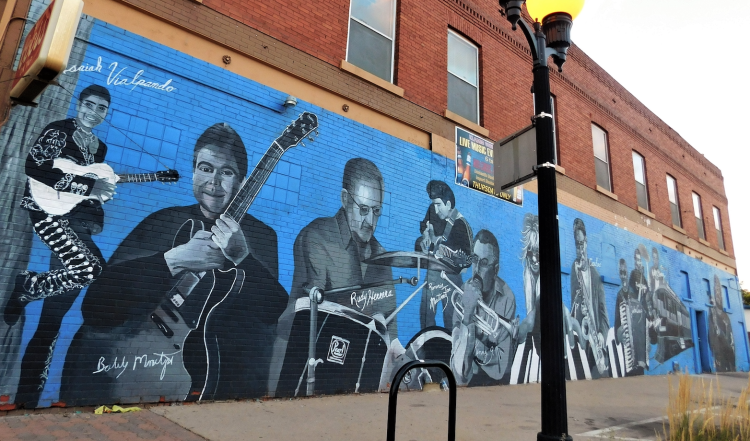American Music Research Center explores musical traditions of Pueblo, CO
The innovative Soundscapes of the People research project documents, preserves and engages diverse musical and cultural influences in and around Pueblo, Colorado.

The American Music Research Center (AMRC) at the University of Colorado Boulder’s College of Music is breaking ground with its innovative Soundscapes of the People project, a comprehensive research effort in collaboration with local community stakeholders to document, preserve and engage with diverse musical and cultural influences in and around Pueblo, Colorado.
Backed by a CU Boulder Research & Innovation Seed Grant and an Outreach Award from the Office of Outreach and Engagement—totaling $74,000—this year-long study will explore ways that musical traditions have served to bridge social, ethnic, urban/rural and religious identities.
“Pueblo’s history is the nation’s history,” says AMRC Director and Professor of Musicology Susan Thomas, who leads the ethnomusicology project with CU Boulder Musicology Chair Austin C. Okigbo and Assistant Professor Xóchitl Chávez at the University of California, Riverside.
“Pueblo is home to multiple underrepresented communities and their musical histories are largely undocumented by traditional institutions,” continues Thomas. “Working directly with community ‘memory keepers’—and documenting their musical experiences and knowledge through oral histories—we aim to address the lack of representation and inclusion in the history of Southern Colorado culture.”
Chávez agrees, “Music and sounds—key components of social identity and community-building—have shaped the history, politics and intersecting cultures of Pueblo, particularly since this borderland between the United States and Mexico collided with the industrial revolution.”
Okigbo adds, “This project seeks to tell the story of the community and its peoples as a way to highlight their significant, but almost forgotten, contributions to the broader history of Colorado, the American West and United States, in general.”
The stories, music and information gathered will eventually be publicly accessible through the University of Colorado Boulder Libraries Rare and Distinctive Collections, as well as the CU Digital Library. The libraries are working on an agreement to also make them accessible through the Colorado State University Pueblo Library (CSUP).
“This cooperation between CU Boulder and CSUP will be a ‘first’ for both institutions, and we’re really happy to be working with a local institution to ensure that the interviews and oral histories captured remain fully accessible to the community,” says Thomas.
CSUP Dean of Library Services Rhonda Gonzales states that—by Spring 2022—CSUP undergraduate students will be working in the library's Special Collections and researched-focused Aztlán Center to work with the digital materials and transcribe interviews.
Moreover, research results will inform K-12 curricular materials that will be made digitally available through both the AMRC and the Latino History Project—a public history initiative supported by CU Boulder’s School of Education—working with the AMRC to provide Colorado educators and the broader community with more resources for understanding the history and contributions of the Latinx community statewide.
“Our research team views itself as a facilitator for the community to tell its own story,” concludes Thomas. “We’re delighted to work directly with Pueblo scholars and artists who’ve been committed to this work for years—like the Song of Pueblo project led by Juan and Deborah Espinosa, who worked with noted composer Daniel Valdez to create a multimedia experience with original music about Pueblo’s compelling history.
“This kind of collaboration is one way that CU Boulder can take an active role in supporting local communities across our state. At the same time, the resulting digital archive will be of high scholarly importance, offering researchers of the American West an unprecedented opportunity to ‘listen in’ on the ethnically diverse complexity of Southern Colorado’s social history.”
All told, the project brings together an interdisciplinary team with expertise in musicology, ethnomusicology, ethnic studies and history that will work closely with culture-bearers from Pueblo’s musical community, local educators and civic leaders.


